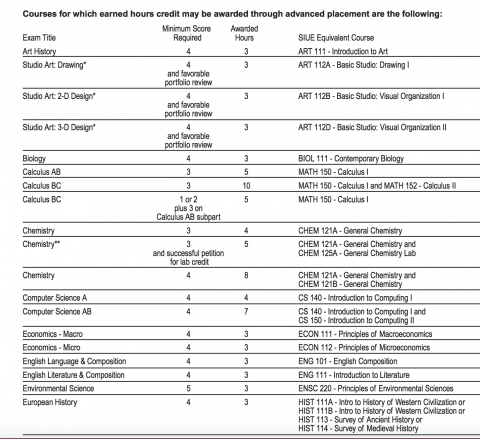Managing Your Finances as a Recent Graduate: Tips and Tricks
Apr 04,2023
Around 40 percent of Americans have a bachelor's degree, and more people are graduating every year.
If you're graduating in the near future, you might be nervous about what your future holds.
Managing your finances as a recent graduate can be challenging, but with a few key steps, you can set yourself up for long-term financial success. Let's go through our top tips to help you off on the right foot.
Create a Budget
The first step to managing your newfound finances is to create a budget. You should start by listing all your monthly income, including any money you earn from a job or side hustle.
Then, list all your monthly expenses, including rent, utilities, groceries, transportation, and any other bills.
Subtract your monthly expenses from your income to see how much money you have remaining. This will give you a clear idea of where you could be overspending and help you identify areas where you can cut back.
Build Up Your Credit Score
Building a credit score as a new graduate is an important step towards financial independence.
Opening a credit card can help you build credit, but make sure to choose one with a low-interest rate and no annual fee. Use the card for small purchases, and pay the balance in full each month.
Paying all of your bills on time is one of the best actions you can take for building good credit. Late payments can hurt your credit score and may result in additional fees.
Your credit utilization refers to the amount of credit you're using as compared to the total amount of credit you have available. Aim to keep your utilization below 30% to help build good credit.
Applying for several different lines of credit in a short amount of time can negatively impact your credit score. You should only be applying for credit when you actually need it.
Keep careful track of your credit score. Monitor your credit report for any problems or signs of fraud. You can get a credit report from many different financial institutions.
Build a Robust Emergency Fund
An emergency fund is a stash of cash set aside for expenses you might not have warning about, like car repairs or medical bills.
Aim to save several months of living expenses in your backup fund. This may seem like a lot, but it can provide a financial safety net if you lose your job or face an unexpected expense.
Look for a savings account that offers a high interest rate, so your money can grow faster. Some online banks and credit unions offer higher rates than traditional banks.
Try to resist the temptation to use your emergency fund for non-emergency expenses. Keep in mind that building your emergency fund is a long-term goal that will pay off in the future.
Pick the Right First-Time Job
When you're just out of college, you'll want to pick a job that can set you up for future success.
Networking with professionals in your field can help you learn about job opportunities and gain valuable insights into the job market. Attend industry events, join professional organizations, and reach out to people on LinkedIn to build your network.
Ideally, you can start networking to get a financially beneficial job before you even leave college.
Look for companies with a positive and supportive work culture. This can make a big difference in your job satisfaction and can lead to better opportunities for growth and advancement.
In addition to salary, consider the benefits that come with the job, such as health insurance, retirement plans, and vacation time. These benefits can have a major impact on the compensation package you're offered.
The cost of living and job opportunities can vary greatly depending on where you live. Consider the location of the job and the cost of living in that area before accepting an offer.
When you receive a job offer, take the time to negotiate the salary they pitch. Research the average salary range for the position and use that information to make a case for a higher salary.
If you're having trouble deciding, there are resources out there that can help you out.
Start Paying Off Your Student Debt ASAP
If you have outstanding student loans or credit card debt, start paying it off as soon as possible. Make a plan to pay more than the minimum payment each month, and consider consolidating your debt to lower your interest rate.
Start by understanding the terms of your student loans, including the interest rate, repayment plan, and due dates. If you have multiple loans, make a list of each one and their details.
If you have multiple student loans pending with different interest rates, consider consolidating them into one loan with a single monthly payment. This can help simplify your payments and could even lower your interest rate over time.
Depending on your profession or circumstances, you may be eligible for student loan forgiveness programs. Research options available to you and see if you qualify.
Paying off student loans can take time, but it's important to stay motivated and committed. Celebrate your financial progress along the way and remind yourself of your financial goals.
Start Saving For Retirement
Even if retirement might never happen, it's never too early to start saving for it.
If your employer offers a retirement plan for employees, sign up and contribute as much as you can afford. If your employer doesn't offer such a plan, consider opening an individual retirement account.
Even seemingly minimal contributions can add up over time, more quickly than you think. Start by contributing a small percentage of your income to a retirement account.
As your income increases over time, consider increasing your retirement contributions as well. Even small increases can make a big difference over the course of your lifetime.
Set up auto-contributions to your retirement account so that you don't have to remember to make your manual deposit every time. This can help ensure that you're consistently saving for retirement.
Live Below Your Means
As a recent graduate, it can be tempting to spend money on things you couldn't afford while you were in school. However, it's important to live below your means to avoid overspending and accumulating debt. Focus on building a strong financial foundation now, and you'll be able to enjoy the fruits of your labor later.
Consider living in a modest apartment, cooking meals at home, and using public transportation instead of owning a car. These choices can help you save money and live below your means.
Take advantage of coupons, sales, and discounts when shopping for groceries, clothing, and anything else you need. Every small amount of savings can add up quickly over the years.
Understand Your Financial Goals
Different financial goals will require different strategies for new graduates.
You might have short-term goals. These are typically financial goals that can be achieved within a few months to a year, such as saving for a vacation or paying off a credit card debt.
Or, you might have medium-term goals. These financial goals usually take a few years to achieve, such as saving for a down payment on a house or paying off a car loan.
You could even have long-term goals. These are financial goals that typically take longer to achieve, such as saving for retirement or owning a home.
If owning a home is a goal, start saving for a down payment. Consider setting a savings goal and contributing a portion of your income each month.
Start Investing
Starting to invest as a recent graduate can be a great way to build wealth over time.
Investing is a good way for new college graduates to build up a nest egg.
Investing in a mix of investment options such as stocks and bonds can help reduce your risk and increase your chances of long-term success. Consider investing in things like low-cost index funds or exchange-traded funds (ETFs) to get started.
Take some time to learn about investing before you dive in. Read books, watch videos, and talk to financial professionals to learn how the stock market works and how to build a successful investment portfolio.
Learn the basics of investing, including the different types of investments, risk tolerance, and asset allocation. There are many resources available for you.
You don't need a ton of liquid funds to start investing. Consider starting with a low-cost index fund or an exchange traded fund that tracks a broad market index.
Don't put all your eggs in just one basket, either. Diversify your investments across different types of assets to reduce risk.
Rebalance your portfolio on a regular basis to ensure that your assets remain aligned with your goals and the level of risk you want.
Controlling Your Finances as a Recent Graduate: Start Today
By following these tips, you can set yourself up for financial success as a recent graduate. Remember, managing your finances is an ongoing process, so continue to track your spending, adjust your budget as needed, and save for your future.
Do you want more advice for life after college? Join the Honor Society today.





